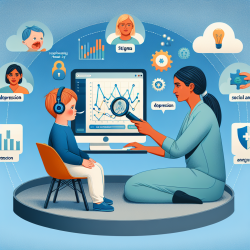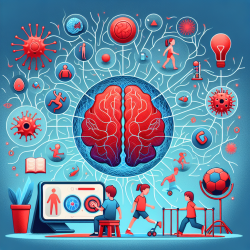The COVID-19 pandemic has underscored the critical role of data-driven decision-making in managing public health crises. A recent scoping review titled "Leveraging Artificial Intelligence for Pandemic Preparedness and Response" provides valuable insights into how artificial intelligence (AI) can be harnessed to improve pandemic preparedness and response. This blog explores the key findings of the research and offers guidance on how practitioners can implement these insights to enhance their skills and readiness for future pandemics.
The Role of AI in Pandemic Management
Artificial intelligence represents a powerful tool that can support clinical and public health decision-making. The scoping review identified six key use cases where AI, particularly machine learning (ML) techniques, can be applied effectively:
- Forecasting Infectious Disease Dynamics: AI can improve the accuracy of disease spread estimations and intervention effects.
- Surveillance and Outbreak Detection: Machine learning algorithms can mine social media and other data sources for early outbreak signals.
- Real-time Monitoring of Public Health Recommendations: AI systems can ensure adherence to guidelines like mask-wearing and social distancing.
- Triage and Diagnosis: AI tools can assist in the timely diagnosis of infections through analysis of medical imaging and patient data.
- Prognosis of Illness: Predictive models can identify patients at higher risk of severe outcomes.
- Mental Health Monitoring: AI can assess the broader impacts of pandemics on mental health through sentiment analysis.
Implementing AI Solutions in Practice
For practitioners looking to enhance their skills using AI, it is essential to understand the practical applications of these technologies. Here are steps you can take:
- Stay Informed: Regularly attend conferences, webinars, and read publications to stay updated on the latest AI developments in healthcare.
- Pilot AI Tools: Consider implementing pilot projects using AI tools for specific use cases such as triage or outbreak detection within your practice or institution.
- Collaborate with Experts: Partner with data scientists and technology experts to tailor AI solutions that meet your specific needs.
- Evolve with Feedback: Use feedback from initial implementations to refine and optimize AI applications for better accuracy and usability.
- Pursue Further Research: Engage in or support research initiatives that explore new AI methodologies for pandemic preparedness.
The Future of AI in Pandemic Preparedness
The integration of AI into pandemic management strategies holds immense potential for improving public health outcomes. However, successful implementation requires ongoing research, collaboration across disciplines, and commitment to ethical considerations such as data privacy. By leveraging the insights from this scoping review, practitioners can play a pivotal role in advancing these technologies to better prepare for future health crises.
If you are interested in exploring this topic further, I encourage you to read the original research paper: Leveraging artificial intelligence for pandemic preparedness and response: a scoping review to identify key use cases.










